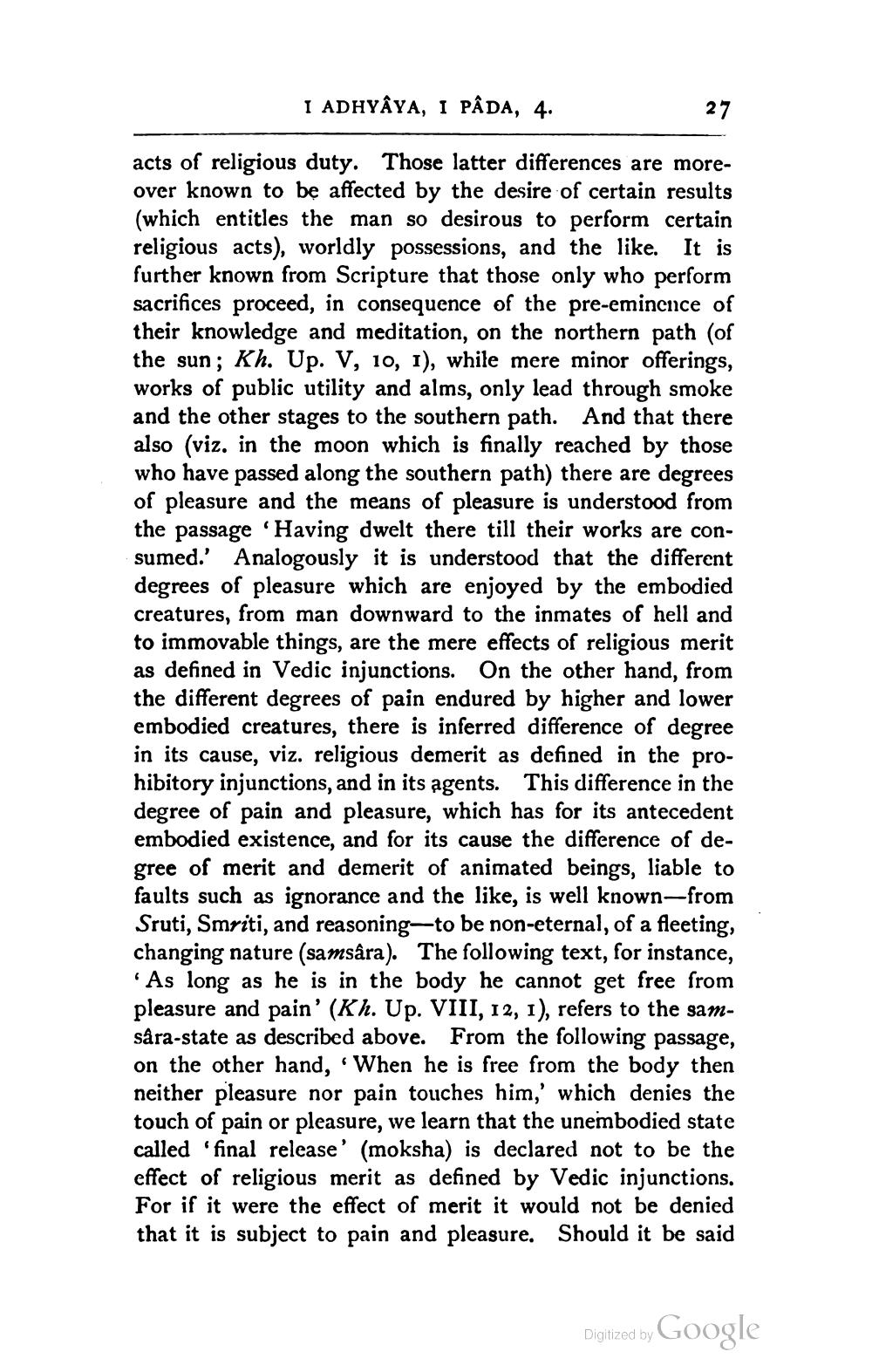________________
I ADHYÂYA, I PÂDA, 4.
27
acts of religious duty. Those latter differences are moreover known to be affected by the desire of certain results (which entitles the man so desirous to perform certain religious acts), worldly possessions, and the like. It is further known from Scripture that those only who perform sacrifices proceed, in consequence of the pre-eminence of their knowledge and meditation, on the northern path (of the sun; Kh. Up. V, 10, 1), while mere minor offerings, works of public utility and alms, only lead through smoke and the other stages to the southern path. And that there also (viz. in the moon which is finally reached by those who have passed along the southern path) there are degrees of pleasure and the means of pleasure is understood from the passage Having dwelt there till their works are consumed.' Analogously it is understood that the different degrees of pleasure which are enjoyed by the embodied creatures, from man downward to the inmates of hell and to immovable things, are the mere effects of religious merit as defined in Vedic injunctions. On the other hand, from the different degrees of pain endured by higher and lower embodied creatures, there is inferred difference of degree in its cause, viz. religious demerit as defined in the prohibitory injunctions, and in its agents. This difference in the degree of pain and pleasure, which has for its antecedent embodied existence, and for its cause the difference of degree of merit and demerit of animated beings, liable to faults such as ignorance and the like, is well known-from Sruti, Smriti, and reasoning to be non-eternal, of a fleeting, changing nature (samsara). The following text, for instance,
As long as he is in the body he cannot get free from pleasure and pain' (Kh. Up. VIII, 12, 1), refers to the samsâra-state as described above. From the following passage, on the other hand, 'When he is free from the body then neither pleasure nor pain touches him,' which denies the touch of pain or pleasure, we learn that the unembodied state called 'final release' (moksha) is declared not to be the effect of religious merit as defined by Vedic injunctions. For if it were the effect of merit it would not be denied that it is subject to pain and pleasure. Should it be said
Digitized by Google




